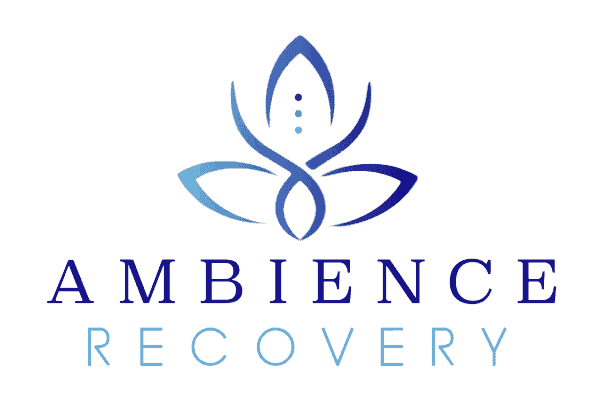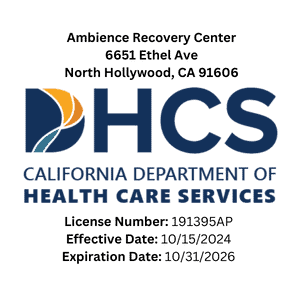Key Takeaways
- What is 12-Step Facilitation Therapy? It’s a structured approach to addiction recovery that follows the principles of the 12-step program.
- Benefits of the 12-Step Program: The 12-step program helps individuals take responsibility, grow emotionally, and find support in addiction recovery.
- Addiction Support Groups Matter: Groups like AA or NA offer a community of people who understand the recovery journey.
Introduction
Recovery from addiction can be compared to climbing a mountain, but with the right help and guidelines, it is possible to get back on one’s feet. The most popular method of recovery is the 12-step program. 12-Step Facilitation Therapy employs this program to help the individual recover with the assistance of a therapist or counselor. At Ambience Recovery, we understand the effectiveness of the 12-step program and, therefore, adopt it in our treatment process for anyone in need.
What is 12-Step Facilitation Therapy?
12-Step Facilitation Therapy is a form of counseling that assists the patient in adhering to the principles of the traditional 12-step model. This program is well known by groups such as Alcoholics Anonymous (AA) and Narcotics Anonymous (NA). Therapy involves discussing the 12 steps with the therapist, how to go about them, and how to use them in daily life.
The 12 steps are a set of guidelines meant to assist an individual in owning up to the fact that they have a problem, making right the wrongs they have done, and finding people who can support them. It is not enough to stop taking drugs or alcohol but to learn how to live an everyday life without drugs or alcohol.
Benefits of the 12-Step Program in Addiction Recovery
The following are the advantages of the 12-step program for people in recovery. One of the biggest strengths is that it is systematic. The 12 steps are a clear guideline for people to follow, and this can be very reassuring when people are unsure of what to expect in the recovery process. Here are some key benefits:
- Personal Responsibility: The 12 steps encourage individuals to take responsibility for their actions and work toward making positive changes.
- Spiritual Growth: Many people find that the program helps them connect with a higher power or develop a stronger sense of purpose.
- Supportive Environment: Working through the 12 steps often involves connecting with a group of people who are also in recovery, which helps individuals feel less alone and more motivated to stay sober.
By following the 12 steps, individuals in recovery can make lasting changes to their behavior and outlook on life.
The Importance of Addiction Support Groups
Support groups are an essential element of the recovery process and integral to the 12-step program. Self-help groups such as Alcoholics Anonymous (AA) and Narcotics Anonymous (NA) offer a support system for people who know what it is to be an addict. These groups provide a platform for people to come out and share their experiences, seek information, and help others going through the same process.
The strength of addiction support groups is the relationships they foster. When people feel that their friends and family are there for them and that they can rely on them, it is easier to find the strength to stick to the process of sobriety. One of the things that makes the 12-step program work is that there are other people who are there to ensure compliance.
How 12-Step Facilitation Therapy Works
In 12-step Facilitation Therapy, the therapist helps the patient to identify and implement the 12 steps in his or her life. The therapist gives direction and encouragement as the person goes through each stage. Here’s how it works:
- Step-by-Step Guidance: The therapist helps the individual understand each step in the program and its meaning in the context of their addiction and recovery.
- Accountability: The therapist helps the individual stay accountable for their progress, ensuring they stay on track with their recovery goals.
- Making Amends: Making amends for past actions is critical to the 12-step program. The therapist guides the individual through this emotional process, helping them rebuild relationships and find peace.
- Peer Support: Support groups allow individuals to connect with others experiencing similar struggles. The therapist encourages individuals to participate in these groups during their recovery journey.
Ambience Recovery’s Approach to 12-Step Facilitation Therapy
At Ambience Recovery, we understand that every individual is unique. Thus, we provide 12-step Facilitation Therapy. Our therapists help the clients follow the 12-steps and offer them the extra help they require to stay sober.
We understand the importance of people and their responsibility, which is why our programs are aimed at helping people stay sober for the rest of their lives. Ambience Recovery is here for those just starting with the 12-step program or those who need more encouragement.
Conclusion
12-Step Facilitation Therapy is a well-known and efficient method of treating patients with addiction problems. The 12-step program is a way of helping people change their lives and get sober by offering a system, companionship, and fellowship. At Ambience Recovery, we embrace the 12-step program as one of the treatment approaches that we use in helping those in need of recovery. If you are willing to continue with the process of recovery, then contact Ambience Recovery at 866-721-7470. We are here to assist you in making the first step towards a new, improved, healthier you.
FAQs About 12-Step Facilitation Therapy
What is 12-Step Facilitation Therapy?
12-step Facilitation Therapy is a form of counseling that assists the patient in following the 12-step plan.
How does the 12-step program help in addiction recovery?
The 12-step program is a well-organized way of helping an individual recover from addiction through personal accountability, spiritual development, and fellowship with other like-minded individuals.
What are addiction support groups?
Self-help groups such as AA and NA are groups where people in recovery can meet and share their experiences, get encouragement, and be held responsible for their sobriety.
How does 12-Step Facilitation Therapy work?
In 12-step Facilitation Therapy, a therapist takes a client through each of the 12 steps and helps the client apply the program’s concepts to his or her life.
How can Ambience Recovery help with 12-step addiction recovery?
At Ambience Recovery, clients receive individualized treatment plans, including 12-step Facilitation Therapy, to ensure they are well-guided and assisted in their journey toward sobriety.
Resources
https://www.12step.com/12steps
https://en.wikipedia.org/wiki/Twelve-step_program
https://www.aa.org/the-twelve-steps
Katie is a Licensed Clinical Social Worker who has worked as a primary therapist, supervisor, and now clinical director for SUD/MH treatment centers for the past 12 years. Katie is trained in Brainspotting, EMDR, Internal Family Systems and Dialectical Behavior Therapy and is passionate about treating substance use disorders, trauma and grief.






